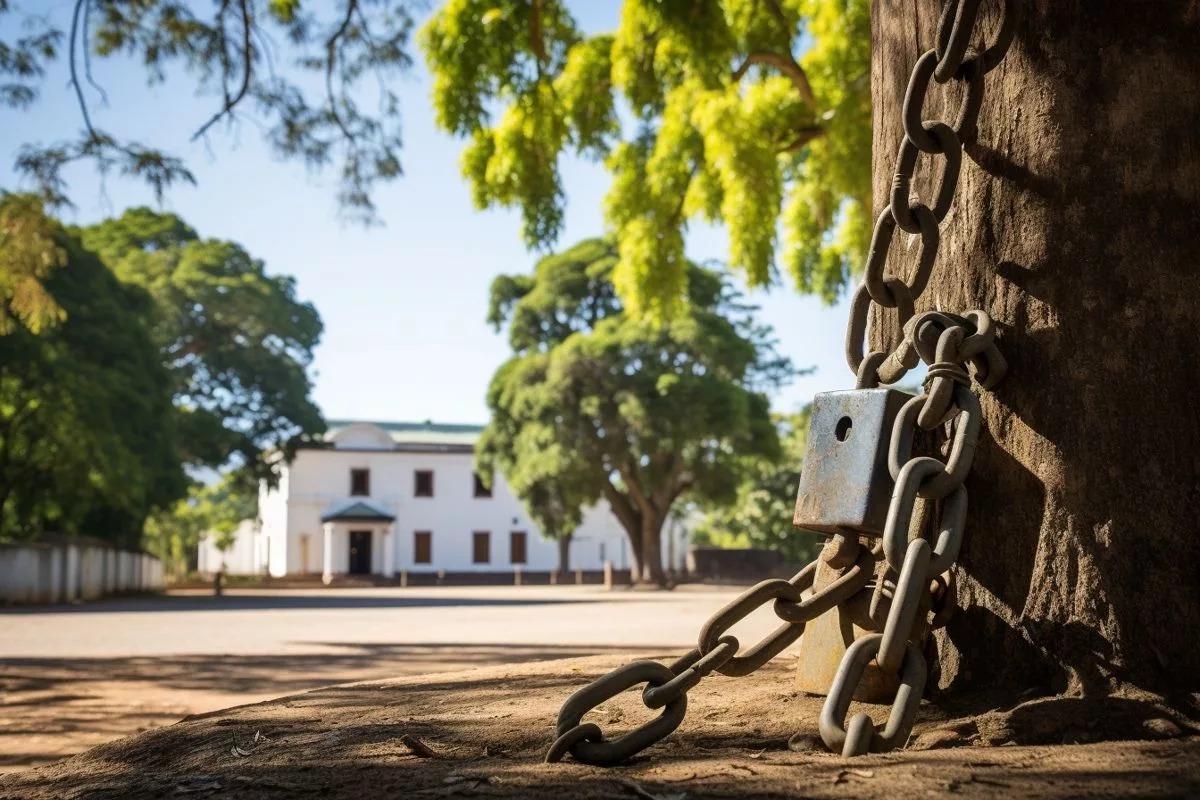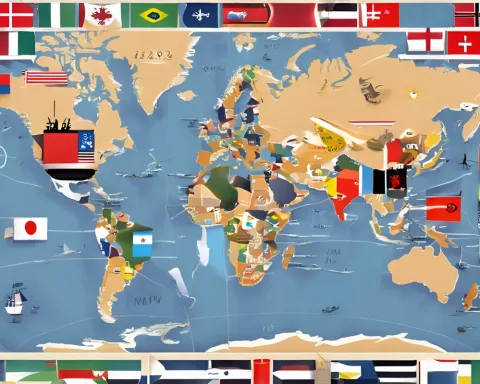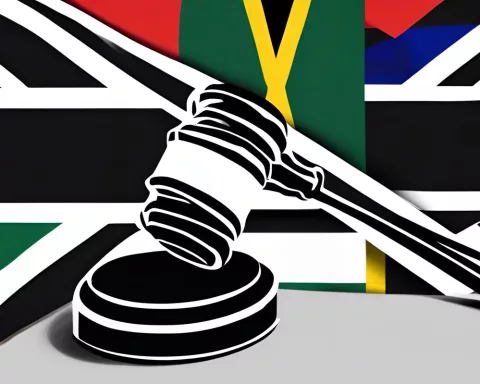Cape Town is facing a major environmental crisis, with the city disposing of larger quantities of sewage into the ocean than what is legally allowed. The issue is especially prevalent in Hout Bay, Green Point, and Camps Bay, where untreated sewage is being discharged into the sea, raising questions about the city’s commitment to environmental regulations. Recent information suggests that the city has breached permit conditions, violating the Integrated Coastal Management Act of 2008, and criminal charges have been filed against the city. It is crucial for the city to adhere to environmental regulations and increase operational transparency to prevent further ecological consequences.
What is the environmental crisis in Cape Town’s coastal waters?
Cape Town has been disposing of larger quantities of sewage into the ocean than what is legally allowable, specifically in Hout Bay, Green Point, and Camps Bay. Recent information suggests that the city has violated the marine outfall discharge permit and breached permit conditions. The city’s failure to comply with the permit conditions is in violation of the Integrated Coastal Management Act of 2008. This situation underscores the significance of stringent adherence to environmental regulations and operational transparency.
Cape Town’s Environmental Challenge
The picturesque coastal city of Cape Town, renowned for its harbour and glorious setting in the Cape Floristic Region of South Africa, is grappling with a major environmental crisis. According to city-released data, Cape Town has been disposing of larger quantities of sewage into the ocean than what is legally allowable. Upon closer examination, it is evident that the sewage fails to meet the basic requirements for effluent discharge. This raises serious questions regarding the city’s commitment to environmental regulations and the potential ecological consequences of such actions.
The Issue at Hout Bay and Beyond
The magnificent Hout Bay, a hot spot for tourists in Cape Town, has been a major site for the city’s waste disposal. Here, untreated sewage is sifted through a three-millimetre grid to eliminate solids before being propelled through a pipe that extends 1.7km into the sea at a depth of 37 metres. However, the issue doesn’t end here. There are two additional waste outfalls situated at Green Point and Camps Bay, further exacerbating the problem.
In 2019, the Minister of Forestry, Fisheries, and the Environment (DFFE), Barbara Creecy, granted a permit for discharging sewage into Hout Bay. Additional permits were granted to Green Point and Camps Bay in December 2022 and January 2023 respectively. Following the issuance of these permits, Creecy required Cape Town’s City Council to initiate a public participation process, scheduled to conclude on November 21.
Legal Implications and Breach of Permit Conditions
However, recent information procured by Michelle Wasserman, ActionSA provincial chairperson, via the Promotion of Access to Information Act (PAIA) application, suggests that the city has violated the special terms outlined in the marine outfall discharge permit. As a result, criminal charges have been filed against the city by ActionSA, for infringing the Integrated Coastal Management Act.
According to the obtained data, in the first six months of this year, the city has surpassed its daily sewage allowance of five million litres on 104 out of 181 days. During six of these days, the city discharged more than twice the legal volume. In an alarming instance, the city disposed of 12.5 million litres in a single day, which is significantly beyond the pipe’s capacity of 9.6 million litres per day. During this six-month span, the city has expelled over one billion litres of sewage via the Hout Bay outfall, greatly exceeding the permitted limit of 905 million litres for the same duration.
Inadequate Quality Control and Negligence
Furthermore, Wasserman stated that the city did not secure authorisation for exceeding the approved volume. The city has also been unsuccessful in meeting the acceptable sewage quality standards, with elevated levels of suspended solids, chemical oxygen demand, and irregular pH levels. In certain cases, these elements were not even measured, indicating a complete disregard for the standards.
Alarmingly, the city did not provide results for the levels of harmful heavy metals such as arsenic, cadmium, calcium, copper, chromium, cyanide, or mercury, which are mandated to be measured weekly as per the DFFE permit guidelines. The city’s failure to set up a Permit Advisory Forum, as required by the permit, is another sign of its negligence.
Infringement of the Integrated Coastal Management Act
Wasserman has stated that the city’s failure to comply with the permit conditions is in violation of the Integrated Coastal Management Act of 2008. She has, therefore, urged the police to investigate this infraction.
In response to the allegations, Zahid Badroodien, City Water and Sanitation mayco member, clarified that the city continues to operate the marine outfalls in accordance with the permits and licence conditions issued by the Department of Water and Sanitation/DFFE. The city also plans to undertake a study to assess the feasibility and cost of treating the sewage prior to discharging it into the ocean, or alternatively, redirecting it to existing sewage treatment facilities.
Future Implications
As the city grapples with this urgent issue, it remains to be seen how it will handle this environmental challenge. This situation underscores the significance of stringent adherence to environmental regulations and operational transparency, particularly in matters that impact not only the city’s reputation but also the well-being of our planet’s oceans.
1. What is the environmental crisis in Cape Town’s coastal waters?
Cape Town has been disposing of larger quantities of sewage into the ocean than what is legally allowable, specifically in Hout Bay, Green Point, and Camps Bay. Recent information suggests that the city has violated the marine outfall discharge permit and breached permit conditions. The city’s failure to comply with the permit conditions is in violation of the Integrated Coastal Management Act of 2008.
2. Where is the issue of sewage disposal most prevalent in Cape Town?
The issue of sewage disposal is particularly prevalent in Hout Bay, Green Point, and Camps Bay, where untreated sewage is being discharged into the sea.
3. What legal implications does Cape Town face because of the sewage disposal?
Criminal charges have been filed against the city by ActionSA for infringing the Integrated Coastal Management Act. This is because recent information suggests that the city has violated the special terms outlined in the marine outfall discharge permit.
4. What are the consequences of the city’s failure to adhere to environmental regulations?
The ecological consequences of the city’s actions remain uncertain. However, the situation underscores the significance of stringent adherence to environmental regulations and operational transparency.
5. What steps has the city taken to address the issue of sewage disposal?
The city plans to undertake a study to assess the feasibility and cost of treating the sewage prior to discharging it into the ocean, or alternatively, redirecting it to existing sewage treatment facilities.
6. What are some of the elements that have been found in the sewage that the city has disposed of?
Elevated levels of suspended solids, chemical oxygen demand, and irregular pH levels have been found in the sewage that the city has disposed of. Furthermore, the city did not provide results for the levels of harmful heavy metals such as arsenic, cadmium, calcium, copper, chromium, cyanide, or mercury.








